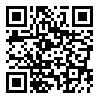
Journal of Emergency Health Care
Formerly known as: International Journal of Medical Investigation

Volume 11, Issue 3 (10-2022)
J Emerg Health Care 2022, 11(3): 112-120 |
Back to browse issues page
Download citation:
BibTeX | RIS | EndNote | Medlars | ProCite | Reference Manager | RefWorks
Send citation to:



BibTeX | RIS | EndNote | Medlars | ProCite | Reference Manager | RefWorks
Send citation to:
Shooraki M M, Daryapour E, Ardani A S. A Causal Model Of Psychological Capital And Harmful Academic Behaviors: The Mediating Role Of Emotional Regulation And Academic Self-Regulation. J Emerg Health Care 2022; 11 (3) :112-120
URL: http://intjmi.com/article-1-855-en.html
URL: http://intjmi.com/article-1-855-en.html
Phd Student In Educational Psychology, Shiraz University.
Abstract: (3024 Views)
Background:This study aimed to present a causal model of the relationship between psychological capital and harmful academic behaviors for the mediating role of emotional regulation and academic self-regulation.
Method: The research method was the correlational model of structural equations. The statistical population of this study consisted of all eighth-grade students in Yazd in the academic year 2010-2011, of which 300 were selected by multi-stage cluster sampling. The research instruments included the Academic Harmful Behaviors Questionnaire, the Academic Self-Regulation Questionnaire the Emotional Regulation Problems Questionnaire, and the Psychological Capital Questionnaire. Data analysis was performed by the structural equation modeling method by PLS software.
Results:The results showed that the structure of psychological capital through the mediation of emotion regulation and academic self-regulation can predict the harmful behaviors of students.
Conclusion: Therefore, it can be concluded that psychological capital could increase or decrease Academic destructive behavior by increasing or decreasing them in academic emotion regulation and self-regulation.
Method: The research method was the correlational model of structural equations. The statistical population of this study consisted of all eighth-grade students in Yazd in the academic year 2010-2011, of which 300 were selected by multi-stage cluster sampling. The research instruments included the Academic Harmful Behaviors Questionnaire, the Academic Self-Regulation Questionnaire the Emotional Regulation Problems Questionnaire, and the Psychological Capital Questionnaire. Data analysis was performed by the structural equation modeling method by PLS software.
Results:The results showed that the structure of psychological capital through the mediation of emotion regulation and academic self-regulation can predict the harmful behaviors of students.
Conclusion: Therefore, it can be concluded that psychological capital could increase or decrease Academic destructive behavior by increasing or decreasing them in academic emotion regulation and self-regulation.
Keywords: Emotion Regulation, Academic Self-Regulation, Academic destructive behavior, Psychological Capital
References
1. 1.Johnson, k. & Nishimura, B. (2013). A study on Locus of Control, Hierarchical Position and Procrastination. European Journal of Management Sciences. 10, 2668-3121.
2. Kashkoli, Faramarz; Khormai, Farhad; Yousefi, Farideh and Foolad Cheng, Mahboubeh. (2018). The role of temperament and emotional safety in harmful educational behaviors of high school students in Bushehr. Bimonthly Journal of Southern Medicine, 21 (3), 253-266.
3. Fergusson, D. M., John Horwood, L., & Ridder, E. M. (2005). Show me the child at seven II: Childhood intelligence and later outcomes in adolescence and young adulthood. Journal of child psychology and psychiatry, 46(8), 850-858.
4. Luthans, F. Carlyn, M. & Bruce, J. (2015). Psychological capital and beyond. Oxford University Press.
5. Adil, A., Ameer, S., & Ghayas, S. (2020). Impact of academic psychological capital on academic achievement among university undergraduates: Roles of flow and self‐handicapping behavior. PsyCh Journal, 9(1), 56-66.
6. Yang, Z., Asbury, K., & Griffiths, M. D. (2018). An Exploration of Problematic Smartphone Use among Chinese University Students: Associations with Academic Anxiety, Academic Procrastination, Self-Regulation and Subjective Wellbeing. International Journal of Mental Health and Addiction. 17, 596–614.
7. Li San Y, Roslan. S.B. Sabouripour.F (2016). Relationship between Self-Regulated Learning and Academic Procrastination. American Journal of Applied Sciences, 13(4), 459.466.
8. Dartaj, Fariborz and Mehr Alian, Ebrahim. (2018). The effectiveness of hope therapy on students' academic procrastination. Journal of Educational Psychology, Allameh Tabatabai University, 14 (48); 73-86.
9. Zare, Hussein; Mahboubi, Taher and Salimi, Hossein. (2015). The effect of hope-promoting cognitive education on reducing procrastination and academic self-disability of Payame Noor Buchan University students. Journal of Education and Evaluation (Educational Sciences), 8 (32); 93-110.
10. Luthans, F. & Youssef, C. M. (2007).Emerging positive organizational behavior. Journal of Management, 33, 321- 49.
11. Gratz, K. L., & Roemer, L. (2004). Multidimensional assessment of emotion regulation and dysregulation: Development, factor structure, and initial validation of the Difficulties in Emotion Regulation Scale. Journal of Psychopathology and Behavioral Assessment, 26, 41-54.
12. Shaykh al-Islami, Ali (2016). Predicting academic procrastination based on cognitive strategies, metacognitive strategies and test anxiety in students. Cognitive Strategies in Learning, 4 (6), 81-101.
13. Hong, J., Hwang, M., Kuo, Y., & Hsu, W. (2015). Parental monitoring and helicopter parenting relevant to vocational student's procrastination and selfregulated learning. Learning and Individual Differences, 42, 139-146.
14. Parbartavoshi, Mahboubeh, Borjali, Ahmad, Kiamanesh, Alireza. (2018). The mediating role of self-regulated learning strategies in the relationship between academic procrastination and positive and negative emotions in high school students. Journal of Educational Leadership and Management, 12 (3), 53-70.
15. Sytine, A. I., Britt, T. W., Sawhney, G., Wilson, C. A., & Keith, M. (2018). Savoring as a Moderator of the Daily Demands and Psychological Capital Relationship: A Daily Diary Study. The Journal of Positive Psychology, 1–8.
16. Daumiller, M., & Janke, S. (2020). Effects of performance goals and social norms on academic dishonesty in a test. British Journal of Educational Psychology, 90(2), 537-559.
17. Park, S. W., & Sperling, R. A. (2012). Academic procrastinators and their self-regulation. Psychology, 3(01), 12.
| Rights and permissions | |
 |
This work is licensed under a Creative Commons Attribution-NonCommercial 4.0 International License. |



